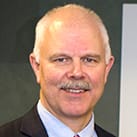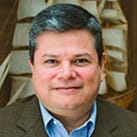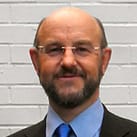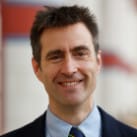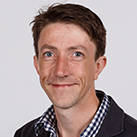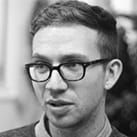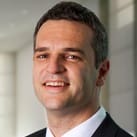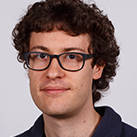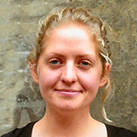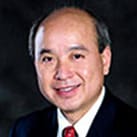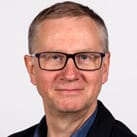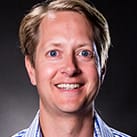5th Risk Summit (2014)

23 Jun 2014
09:00 -21:30
24 Jun 2014
09:00 -16:15
Times are shown in local time.
Open to: Specialists and business managers, including threat specialists, academics, policy-makers, practitioners and advisors

Cambridge Judge Business School
Trumpington St
Cambridge
CB2 1AG
United Kingdom
The Pulse of Risk: From Big Data to Business Value
In June 2014 the Cambridge Centre for Risk Studies brought together leaders and decision makers from businesses, governments, intergovernmental organisations, academia and NGOs to explore salient topics in risk management.
The summit was held at the University of Cambridge Judge Business School, followed by a conference dinner at Emmanuel College, Cambridge.
This year’s summit theme explored implications of “Big Data” and its opportunities and risks to businesses.
The democratisation of information access has provided enormous opportunities for individuals and organisations while creating growing debate on its consequential use.
Big data holds potential for research, innovation and productivity, while posing complex questions of ownership, value, aggregation, and the broader benefits to society.
Registration closed
Registration for this event is closed. If you are interested to hear about upcoming events and other Centre-related news and resources, please join our mailing list.

Principal knowledge partner
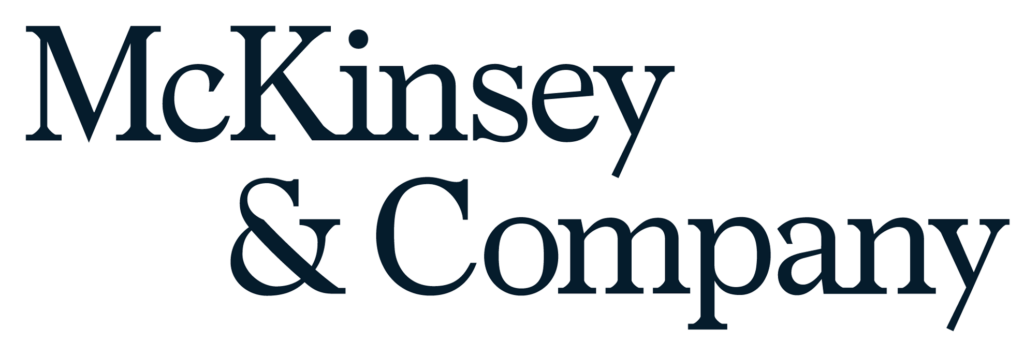
Sustaining meeting partner
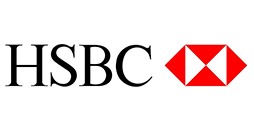
Meeting partner
Programme partners

Centre sponsors

Academic collaborators

Programme
Day 1
Monday 23 June 2014
09:00 – 15:00
Special Topics Seminar
15:30 – 16:00
Risk Summit Registration and Coffee/Tea
16:00 – 16:15
Risk Summit Welcome
Dr Michelle Tuveson, Executive Director, Cambridge Centre for Risk Studies
16:15 – 17:00
Plenary Session 1: Globalisation and Systemic Risk
Keynote: The Butterfly Defect: Why Globalisation Creates Systemic Risks and What Can Be Done
Professor Ian Goldin, Professor of Globalisation and Development at the University of Oxford and Director, Oxford Martin School
17:00-18:00
Risk Summit Day 1 Panel
Moderated by: Dr Michelle Tuveson, Executive Director, Cambridge Centre for Risk Studies
- Dr Michael Maran, Chief Science Officer, Catlin Group
- David Harding, Founder and President, Winton Capital Management
- Professor Daniel Ralph, Academic Director, Cambridge Centre for Risk Studies, University of Cambridge Judge Business School & Professor of Operations Research
- Alan Smith, Global Head of Risk Strategy and Chief of Staff, HSBC Holdings
18:00 – 19:00
Drinks Reception at Cambridge Judge Business School
19:00-21:30
Risk Summit Dinner at Emmanuel College
Day 2
Tuesday 24 June 2014
09:00 – 09:30
5th Risk Summit Registration & Coffee
09:30 – 09:35
Risk Summit Welcome & Introductions
Dr Michelle Tuveson, Executive Director, Cambridge Centre for Risk Studies
09:35 – 11:00
Plenary Session 2: Enhancing the Understanding of Risk
Chair: Simon Ruffle, Director of Technology Research and Innovation, Cambridge Centre for Risk Studies
10:00-10:30 – Innovation for a Secure Future – Dr Ray Johnson, Chief Technology Officer, Lockheed Martin
10:30-11:00 – Global Differences: New Credit-risk Models for the Unbanked – Dr Tobias Baer, Master Expert, Risk Practice, McKinsey & Company
11:00 – 11:30
Break
11:30 – 13:00
Plenary Session 3: Disruptive Changes to the Views of Risk
Chair: Dr Andrew Coburn, Director of the External Advisory Board, Cambridge Centre for Risk Studies and Senior Vice President, RMS
12:00-12:30 – Financial Cartography – Dr Kimmo Soramäki, Founder & CEO, Financial Network Analytics
12:30-13:00 – Panel Discussion: Big Data Disruptions and the Evidence for Business Value
- Martin Pergler, Senior Expert, McKinsey & Co
- Dr Kimmo Soramäki, Founder & CEO, Financial Network Analytics
- Dr Louise Pryor, Risk Researcher, Cambridge Centre for Risk Studies
- Juan Carlos Castilla-Rubio, Founding CEO, Planetary Skin Institute
McKinsey Risk Prize Announcement
Dr Sven Heiligtag, Principal, McKinsey & Company
13:00 – 14:00
Lunch at Cambridge Judge Business School
14:00 – 15:00
Plenary Session 4: Taking the Pulse of Risk
Chair: Andrew Freeman, Director, The Finance Foundation
14:00-14:30 – Energy Economic Forecast – Paul Appleby, Head of Energy Economics, Group Economics Team, BP
14:30-15:00 – Risk & Responsibility in a Hyperconnected World – Joseph Hubback, Associate Principal, McKinsey & Company
15:00 – 16:00
The “Big” Debate
Debate motion: This house believes that “big data” is the new currency and holds societal benefits. Following the “Oxford-style” of debate, the value of “big data” will be debated. The debate format will feature motions in support or in opposition of the house motion. Attendees will participate in a pre-debate vote on the motion. Each panellist will present an opening statement followed by questions from the audience. In conclusion, each panellist will deliver a closing argument, and the meeting participants will provide a final vote.
Chair: Andrew Freeman, Director, The Finance Foundation
For the Debate Motion:
- John Scott, Chief Risk Officer, Zurich Global Corporate
- Richard Ward, Government Relations, IBM Europe
Against the Debate Motion:
- Professor Zoubin Ghahramani, Professor of Information Engineering, University of Cambridge
- Dr David Good, Fellow, King’s College, Cambridge
16:00 – 16:15
Summary & Conclusions
Professor Daniel Ralph, Academic Director, Cambridge Centre for Risk Studies, University of Cambridge Judge Business School & Professor of Operations Research
Special topics seminar
09:00
Registration opens
09:30
The Cambridge CRS Risk Framework: Scenarios, Threats, and Business Decisions
Professor Daniel Ralph, Academic Director, Cambridge Centre for Risk Studies
10:10
Systems of Systems: Mapping Global Exposure Networks
Dr Andrew Skelton, Risk Researcher, Cambridge Centre for Risk Studies
10:30
Cyber Catastrophe: An Interlinked Systemic Risk
Simon Ruffle, Director of Technology Research & Innovation, Cambridge Centre for Risk Studies
10:50
Coffee break
11:30
Catastronomics: The Economics of Catastrophes
Dr Scott Kelly, Research Associate, Cambridge Centre for Risk Studies
11:50
Understanding Financial Catastrophes
Dr Fabio Caccioli, Research Associate, Cambridge Centre for Risk Studies
12:10
Data for Risk Analysis: Exposure & Vulnerability
Dr Roxane Foulser-Piggott, Research Associate, Cambridge Centre for Risk Studies
12:30
Mapping Political Risk & Geopolitical Conflict
Joshua Wallace, Cytora
12:50
Lunch
14:00
Catalysing Risk Management Innovation through Openness
Paul VanderMarck, Chief Products Officer, Risk Management Solutions
Chair: Professor Tso-Chien Pan, Executive Director, Institute for Catastrophe Risk Management, Nanyang Technological University, Singapore
14:30
Cambridge Centre for Risk Studies Research Agenda 2015
Dr Andrew Coburn, Director of External Advisory Board, Cambridge Centre for Risk Studies
15:00
End of pre-conference session
Speakers
Paul Appleby
Head of Energy Economics, BP Group Economics Team
Paul Appleby leads the analysis of long term energy market developments for BP. His career at BP spans 29 years, and includes a variety of roles in BP’s gas and alternative energy businesses. Most recently he was the custodian of the investment appraisal process for BP’s gas, power and renewables businesses worldwide.
He received his theoretical training in economics at the University of Cambridge (MA and MPhil), and served a practical apprenticeship as a Fellow of the Overseas Development Institute, posted to Malawi. He is an associate lecturer in energy economics at the University of Surrey, and a member of the Council of the British Institute of Energy Economics.
Work experience:
- Head of Energy Economics, 2009-
- Head of Global Gas Market Analysis, 2008-2009
- Senior Advisor, Investment Appraisal, 2004-2007
- Senior Strategy Advisor, Gas Power & Renewables, 2001-2004
- Commercial Manager, UK Gas & Power, 1999-2002
- Director, Strategy & Planning, BP Solar, 1998-1999
- Senior Economist, Group Economics Team, 1992-1998
- Market Analysis Team Leader, European Gas, 1989-1992
- Senior Economist, BP Australia, 1987-1989
- Economist, BP Group Corporate Planning, 1984-1986
- Planning Economist, Government of Malawi, 1981-1983
- (Fellow of the Overseas Development Institute)
Juan Carlos Castilla-Rubio
Founding CEO, Planetary Skin Institute
Founding CEO of the Planetary Skin Institute, an independent research & development US corporation co-founded between Cisco and NASA tasked to incubate and start-up advanced risk management decision-support platforms that enable governments, industrial corporations, infrastructure players, utilities, resource commodity operators and financial market players for a step change in the proactive risk management of their mission critical assets, their natural resources supplies, their infrastructures and their supply chains. PSI was awarded one of TIME Magazine’s Top Innovation Awards for 2009 and has been profiled in The Economist, the New York Times and Fast Company, amongst others.
Prior to his PSI role, Juan Carlos led the Cisco Global Resource/Risk Management Innovations team with global responsibility for programs incubating Big Data & Analytics, Internet of Things and cloud-based risk management platforms across multiple industries and sectors globally. Before that, he led Cisco’s Emerging Markets Innovation Group focused on designing and operationalising large scale/complex technology-enabled innovation programs for governments and corporations emerging markets wide, with a focus in Brazil, Chile, India, South Africa, Mexico, South Africa, Gulf States, Turkey and China.
Prior to joining Cisco, Juan Carlos was a Partner for Oliver Wyman where he led the financial services and telecom practices in Latin America. Prior to Oliver Wyman, he was CEO for an innovative biotechnology start-up focused on next generation bio-fuel technologies and pharma research in the Amazon, an EVP Operations for a brewery group in Latin America (now SABMiller), a Managing Director for Corporate Strategic Development of a diversified financial services group in Latin America (Intercorp Group) and a senior consultant for McKinsey & Company in Brazil.
Juan Carlos is currently the Co-Chair of the World Economic Forum’s Global Advisory Council on Measuring Sustainability and was a member of the World Economic Forum’s Global Advisory Council on Climate Change; member of Duke Energy’s International Strategy Advisory Council, a member of the World Economic Forum’s Steering Boards for the Water Security, Resource Scarcity, New Energy Architecture and Big Data initiatives.
Dr Andrew Coburn
Director of Advisory Board, Centre for Risk Studies
Andrew Coburn manages the Advisory Board of the Centre for Risk Studies, coordinating the inputs of consumers of research into the Centre’s risk agenda. Andrew is the principal coordinator of the research programme on ‘System Shock’ at the Centre.
Andrew is one of the leading contributors to the creation of the class of catastrophe models that over the past 20 years has come to be an accepted part both of business management in financial services and of public policy making for societal risk. He has extensive experience in developing models and using them for business decision support. Andrew has also provided research inputs into government policy, such as House of Congress legislation on terrorism risk management policy and urban planning for disaster mitigation in Mexico, Metro Manila, and Southern Italy.
Dr Andrew Coburn is a member of the senior management of Risk Management Solutions, the leading provider of catastrophe risk models to the insurance industry.
Dr Scott Kelly
Research Associate, Centre for Risk Studies
Scott Kelly is a post-doctoral research associate in the Centre for Risk Studies. He holds research posts in the Centre for Climate Change Mitigation Research (4CMR) in the Department of Land Economy and the Electricity Policy Research Group in the Judge Business School at the University of Cambridge. He is a Junior Research Fellow of Darwin College.
At the Centre for Risk Studies Scott leads the research on macroeconomic modelling. Within the centre, macroeconomic models are used to describe the global and regional impacts that occur as a result of different risk scenarios developed as part of the Cambridge Risk Framework. Research includes estimating the economic impact of exogenous shocks and their propagation in global networks. Specific research areas include the analysis of international trade, supply chain analysis, sector analysis and the estimation of supply chain risk.
Prior to joining the Centre for Risk Studies research included modelling the macroeconomic impact of disasters, the economics of infrastructure, complex systems modelling, input output analysis, econometrics, energy systems modelling and sustainable development. Specialising in applied modelling approaches, expertise has been developed in a variety of different statistical techniques such as multiple linear regression, panel methods and structural equation modelling. More recently knowledge has been developed in the application input-output models, social network analysis and agent based models.
Professor Daniel Ralph
Academic Director, Centre for Risk Studies
Professor Daniel Ralph’s research interests include risk in business decision making; risk aversion in electricity markets; methods and models for optimisation problems and equilibrium systems. Specific projects undertaken in collaboration with the banking and insurance industry (Catlin, HSBC, ICBC, Lloyd’s, Munich Re, Risk Management Solutions, Swiss Re) cover emerging risk scenarios, financial stress testing and a global ranking of cities by risk exposure. His engagements with other sectors include electricity consultancies (Artelys, LCP), oil and gas (Shell Exploration, Statoil) and retail (BT Retail, Gap) on decision making under high uncertainty. Public service contributions to the UK Cabinet Office, UK Industry and Parliamentary Trust, UK Office of the Government Chief Scientific Advisor, and United Nations World Humanitarian Summit.
Professor Ralph is a member of the Australian Mathematical Society, INFORMS, the Mathematical Optimization Society and SIAM. He was Editor-in-Chief of Mathematical Programming (Series B) from 2007-2013 and has served on the editorial boards of Mathematics of Operations Research and the SIAM Journal on Optimization, as well as the SIAM-MPS book series on optimisation.
Following post-doctoral research at Cornell University, Professor Ralph was Lecturer and then Senior Lecturer at the University of Melbourne in Australia.
Dr Andrew Skelton
Risk Researcher, Centre for Risk Studies
Andrew Skelton is an affiliate of the Centre for Risk Studies and holds a research post at the Centre for Climate Change Mitigation Research (4CMR) in the Department of Land Economy at the University of Cambridge.
With the Centre for Risk Studies, Andrew is helping to develop a dataset of the world’s largest enterprises that drive the global economy and their relationships with each other. Particular focus is being given to quantifying supply chain linkages across a network of multinational enterprises to gain insight into the potential impact of a cyber catastrophe scenario.
Andrew is also interested in the role played by major enterprises in driving (and mitigating) environmental impacts through indirect supply chain activities; work that falls at the intersection of economics, environmental science, international business and supply chain management. Previous research has included: the development of an approach for mapping and visualising flows of embodied greenhouse gas emissions through the global economy; the assessment of how different regions, industries and enterprises could mitigate emissions within their international supply chains; and, the development of a computational model for estimating the carbon footprint of a group of enterprises that removes double-counting caused by the presence of enterprises within each other’s supply chains and deals with uncertainty introduced by incomplete information.
Andrew has an earlier background in product design and holds an MPhil in Engineering for Sustainable Development from the University of Cambridge and an MEng from the University of Durham.
Joshua Wallace
Co-Founder, Cytora
Joshua is a political scientist and co-founder of Cytora, providers of political risk analytics. A key subject matter specialist on geopolitical risk, he assists the Cambridge Centre for Risk Studies with the development of stress test scenarios for geopolitical conflict and social unrest. With a background in political science, management and IT consultancy and international development, Joshua is passionate about how new technologies can be applied to the world’s most vexing problems. He co-founded Cytora, where he is head of research. His time in consultancy saw him advise some of the world’s biggest companies such as GlaxoSmithKline while his development work has taken him to Ghana, Sierra Leone, Swaziland and India. Joshua has an MSc in Political Science from University College London and a BA in History from the University of Manchester.
Tobias Baer
Master Expert, McKinsey & Company’s Risk Management Practice
Dr Tobias Baer is a Master Expert of McKinsey & Company’s Risk Management Practice and Leader of the company’s Credit Risk Advanced Analytics Service Line as well as the Risk Modeling Center in India. He serves clients globally, including leading financial institutions in Europe, North America, and Australia, and fast-growing organisations in Asia, Latin America, Eastern Europe and Africa, focusing on innovation in risk modelling, non-traditional and big data, analytics-enabled business transformations, and the creation of new lending businesses. Tobias holds a PhD from the University of Frankfurt and drives research & development in rating methodology, decision systems, and economic capital.
Dr Fabio Caccioli
Research Associate, Centre for Risk Studies
Fabio Caccioli is a postdoctoral research associate at the Centre for Risk Studies. He also continues to be involved in research activities at the Institute for New Economic Thinking, Oxford Martin School, University of Oxford, and was previously a postdoctoral fellow at the Santa Fe Institute in Santa Fe, New Mexico (USA).
He holds a PhD in Statistical Physics from the International School for Advanced Studies in Trieste (Italy).
His research mainly focuses on systemic risk and financial stability. Other research interests include complex networks and non-equilibrium statistical mechanics. His contribution to the study of systemic risk includes the study of financial contagion due to overlapping portfolios and the study of the impact of derivatives for financial stability.
Dr Roxane Foulser-Piggott
Research Associate, Centre for Risk Studies
Roxane Foulser-Piggott is a post-doctoral research associate at the Centre for Risk Studies, working on the vulnerability of the systems of the global economy and the global landscape of risk.
Roxane trained as an earthquake engineer, specialising in vulnerability assessment and post-earthquake damage assessment techniques. She has worked on insurance applications of risk assessment and has published on ground motion modelling and on remote sensing techniques for damage assessment.
Roxane completed her PhD on earthquake ground motion uncertainty at Imperial College London in 2012.
A director of Cambridge Architectural Research, Roxane has research interests in GIS, spatial statistics, structural vulnerability and ground motion modelling.
Professor Tso-Chien Pan
Professor and Executive Director, Institute of Catastrophe Risk Management, Nanyang Technological University, Singapore
Professor Tso-Chien Pan is the Executive Director and Founding Director of Institute of Catastrophe Risk Management (ICRM) at Nanyang Technological University, Singapore. He is the former Dean of the College of Engineering at NTU. Professor Pan specialises in the analysis and design of structures against dynamic loading. Over the years, he has carried out many research projects in the area of dynamic structural response to shock and blast loading, as well as earthquake excitations. As Founding Director, Professor Pan is leading the development of ICRM, a university-wide research institute, to look into the effects of natural and man-made disasters on the society.
Simon Ruffle
Director of Technology Research & Innovation, Centre for Risk Studies
Simon’s main activity in the Centre focuses on the Cambridge Risk Framework research programme where he is leading the development of open source technology to support research into how complex global socio economic networks behave under extreme systemic macro shock conditions.
He is leading the development of the Substrate Data project – closely coupled to the framework – a set of business and economic networked data sets that provide an underpinning for the modelling and analysis of value flows and contagion.
In addition, he is leading the Cyber Threat research track.
Originally studying architecture at Cambridge, Simon has spent most of his career in industry, developing software for natural hazards risk. He has worked on risk pricing for primary insurers, catastrophe modelling for reinsurers, and has been involved in placing catastrophe bonds in the capital markets. He has many years of experience in software development, relational databases and geospatial analysis and has worked in a variety of organisations from startups to multinationals.
Paul VanderMarck
Chief Products Officer, Risk Management Solutions
Paul VanderMarck is chief products officer of RMS. In this role, he has overall responsibility for developing the RMS(one) ecosystem. Since joining RMS in 1992, he has played a central role both in the development of RMS’s global catastrophe modelling capabilities as well as in advancing the state of practice for using modelling to manage catastrophe risk. In 2003, Paul was recognised by the Earthquake Engineering Research Institute for his contributions to the field of earthquake risk mitigation and management with the Shah Family Innovation Award, and he serves as chairman of the board for Build Change, a non-profit organisation dedicated to reducing deaths, injuries, and economic losses caused by housing collapses due to earthquakes in developing countries. Paul holds a BS in civil engineering and an MS in structural and earthquake engineering, both from Stanford University.



